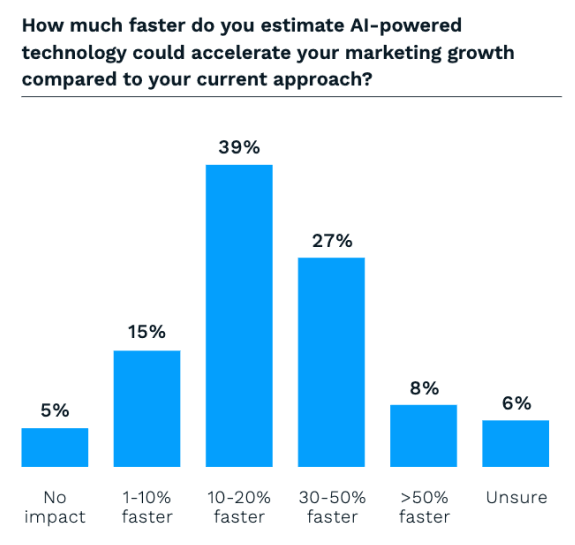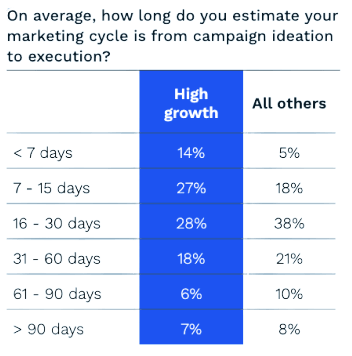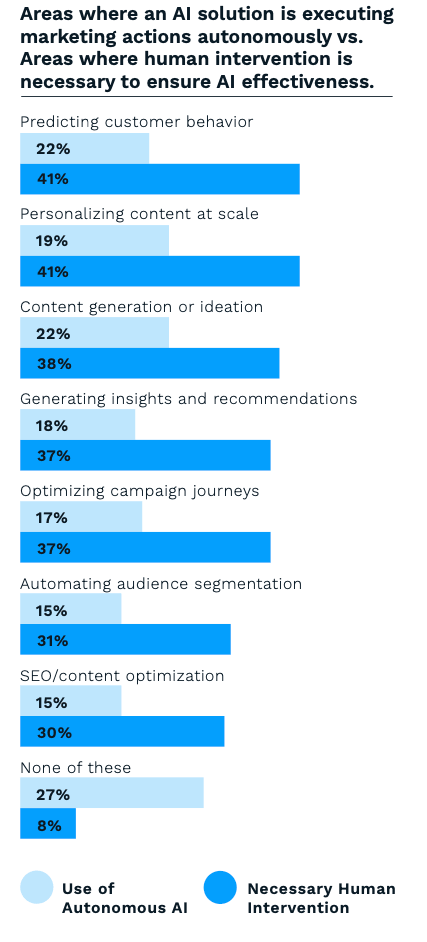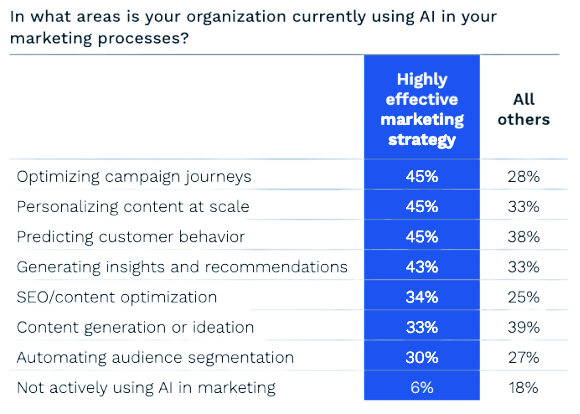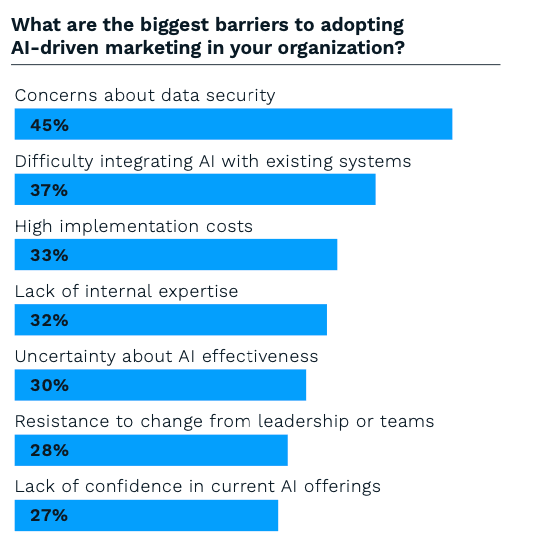Study: How high-performing teams are accelerating marketing cycles
Key Takeaways:
89% of marketers surveyed say pressure to deliver better results in less time has increased significantly in the last two years.
High-growth teams are more likely to have marketing cycles that are “fairly fast” or “extremely fast."
High-performing teams are also more likely to adopt AI within their marketing cycles.
86% of the marketers we surveyed believe human intervention improves AI efficacy.
